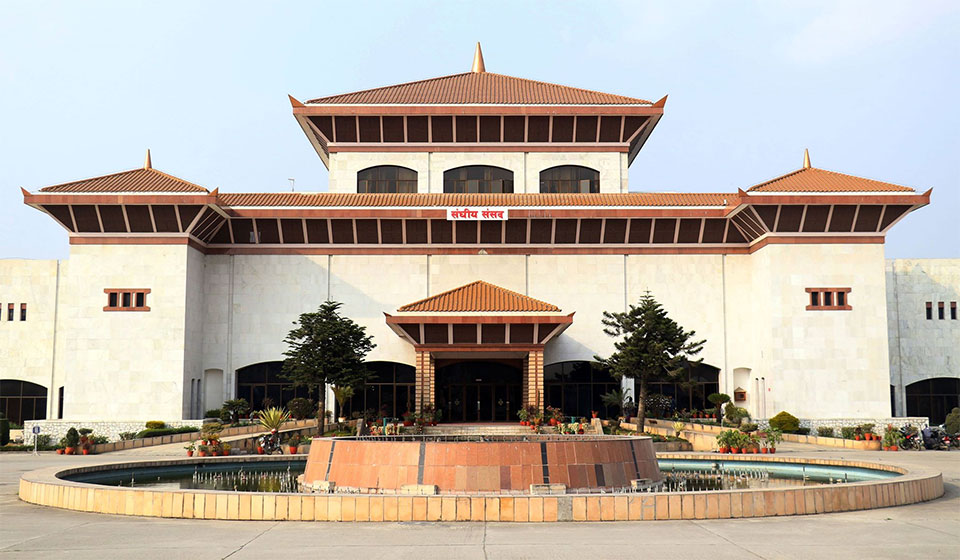
KATHMANDU, March 6: With the recent shift in the power alliance, the question has been raised as to how secure the positions of chairpersons of the parliamentary committees are. While the chairpersons of these committees are elected by a majority vote, a two-thirds majority is required to remove them, making their position somewhat insecure. Sub-rule 2 of regulation 177 of the House of Representatives outlines four scenarios where the positions of chairpersons of parliamentary committees become vacant.
If the member of parliament ceases to be a member, if they become a minister, if they resign, or if a two-thirds majority of the committee members pass a resolution stating that the chairperson has not fulfilled his/her responsibilities honestly. Although removing the chairperson may seem challenging, issues regarding reputation could potentially force the chairperson to resign, affecting the committee's functioning, according to sources.
There is a stipulation that the opposition should always hold the chairmanship of the Public Accounts Committee (PAC). Since the main opposition party, previously taken by UML, is currently held by the Nepali Congress (NC), they could potentially claim the chairmanship of the PAC. The NC did not leave the Chairmanship of the PAC after the Sher Bahadur Deuba-led government was formed by the Supreme Court's order of July 12, 2021.
During the government led by UML Chairman Oli, the chairmanship of the PAC was given to the main opposition NC at that time. However, since the UML was in the opposition after the government formed through the Supreme Court’s mandamus, the UML boycotted the meeting of the PAC demanding the chairmanship of the PAC.
However, the UML alleged that Bharat Shah of the NC, who became the chairman of the PAC, did not resign on the grounds of ethics and made the work of the committee uncomfortable. Now, if Rishiram Pokharel does not resign as the Chairman of the PAC, there is a possibility that the NC may boycott the committee meeting like the UML.
Committee chairmanships were distributed based on the alliance with the NC. However, with the latest change in the power equation, parliamentary committee meetings have not been called. The Law, Justice and Human Rights Committee meeting was adjourned on Monday. According to the Parliament Secretariat, no committee meeting has been convened so far. Officials of the secretariat say that the main role of the parliamentary committees in making laws has been overshadowed for the time being due to the impact of new government formation on the parliamentary committees. According to the official, the absence of MPs on parliament premises on Tuesday while the parliament session was in progress has made everyone's attention focused on Baluwatar.
Various committees, including the Finance Committee, Agricultural Cooperatives and Natural Resources Committee, and State Affairs and Good Governance Committee, are now chaired by the NC. The UML holds the chairmanship of the PAC, as it is currently in the opposition, along with other committees such as the Women and Social Affairs Committee.
The Law, Justice, and Human Rights Committee chairmanship belongs to the Maoist Center, while the CPN (Unified Socialist) chairs the Education, Health, and Information Technology Committee. The Infrastructure Development Committee is chaired by the Rastriya Prajatantra Party (RPP), and the Janamat Party holds the chairmanship of the Industry and Commerce Committee and the Labor and Consumer Welfare Committee. The International Relations and Tourism Committee is chaired by the Janata Samajwadi Party.
Disagreements between the chairpersons and committee members could hinder discussions and decision-making processes, potentially resulting in certain agendas being sidelined. In the past, members of the NC expressed concerns about the effectiveness of committees after the CPN-UML-led government suppressed the role of parliamentary committees.
Additionally, the absence of the Prime Minister and ministers in committee meetings has previously disrupted proceedings, as the presence of the relevant minister is required for bill discussions. However, if the minister concerned is absent, the discussions on the bills cannot proceed forward.












